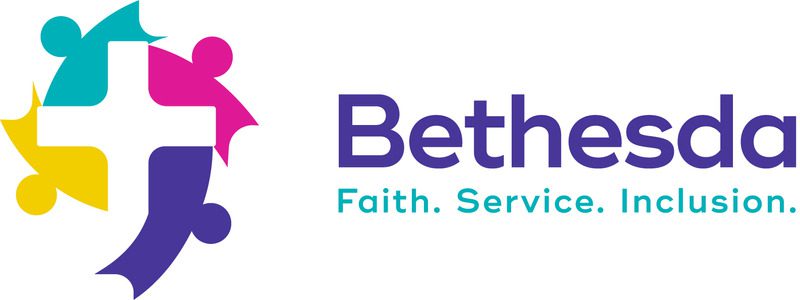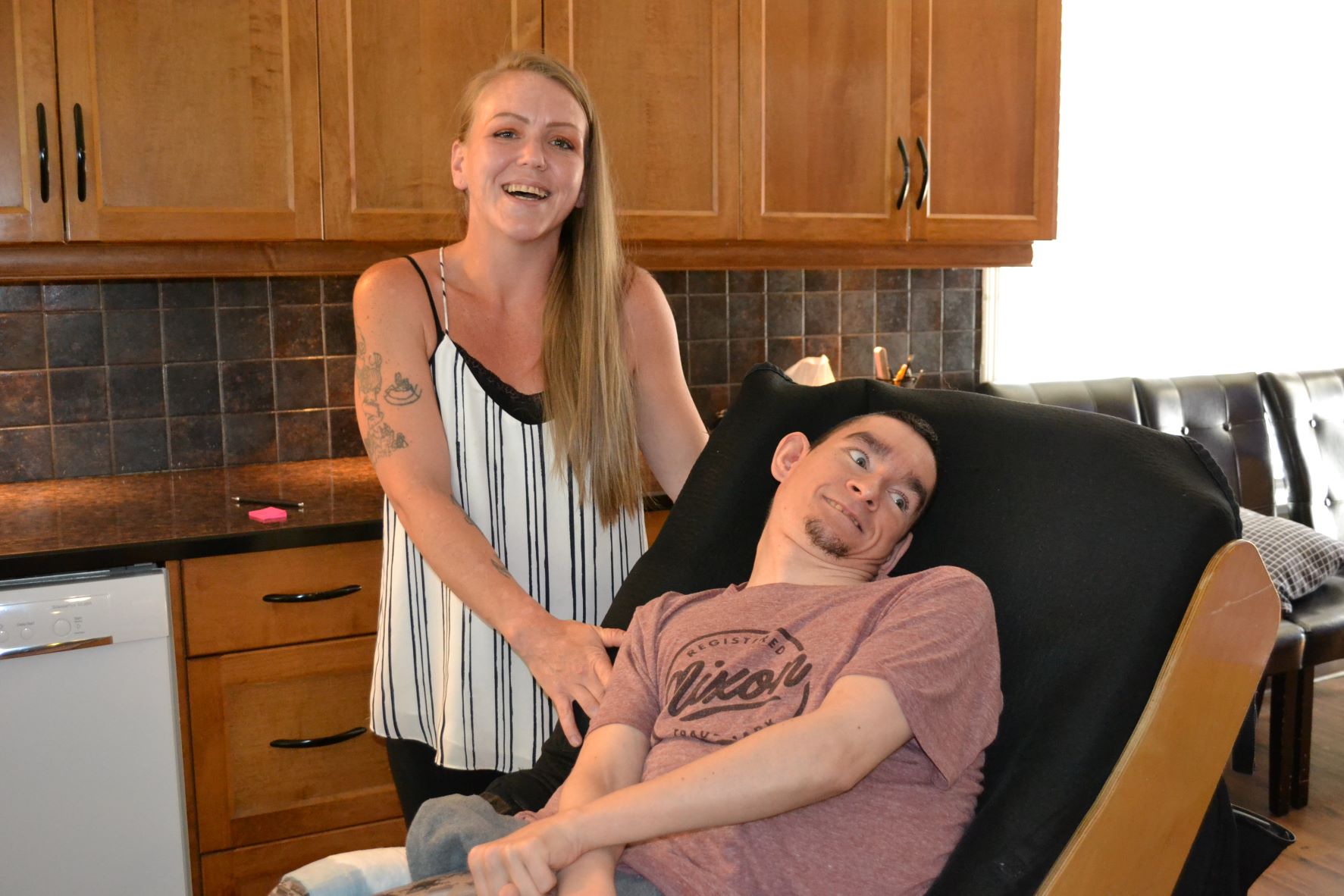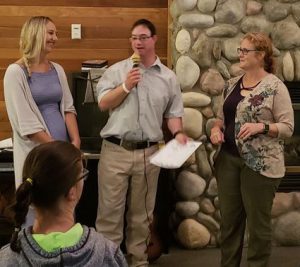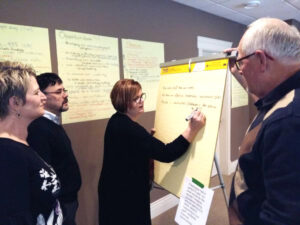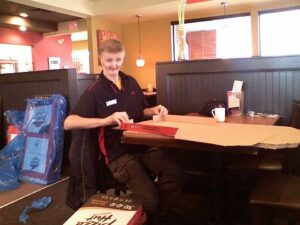Support workers partake in incredibly rewarding and reciprocal partnerships. They help people learn, grow, thrive, connect and build relationships. And they grow personally as they witness the impacts of their work on the people they support and all the other people they interact with.
One thing you can’t miss when you first meet Cylena, is her enthusiasm for her job supporting people with diverse abilities. When asked why she likes her job so much, the answer comes spilling out.
Cylena explains, “It makes a difference when the home is clean and attractive. It feels like an actual home, nothing like an institution.” While the setting is pleasant to work in, what really makes it special for her is the love that is so evident in the home. She says, “As staff, we’re encouraged to develop loving relationships with the people we support. We are free to offer them comfort and spiritually encouragement.”
As a support worker at Matsqui Home in Abbotsford, Cylena works with Cameron, as his key worker, as well as helping with the other three men who live in the home.
The family-like feel of the home is enriched by the involvement of each of the men’s families. She says, “It means a lot that the families of the four men are involved with us in their support. They help with choices and visit them in the home regularly. There is a good spirit of cooperation between us and the families that we are working together in the best interests of the men.”
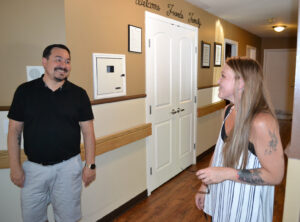
Cylena with Sava, the manager of the home. Cylena has been a support worker at Matsqui Home since 2018. Working with the men living in the home has had a big impact of her life, giving her opportunities to grow and develop leadership skills.
Cylena is helping Cameron prepare for his day. From greeting him when he wakes up, until he’s dressed and had his breakfast, they interact continuously. She talks to him and asks him questions, listening and watching for his responses. She plans a day with Cameron, based on his interests and goals, but the plan can change if Cameron wants it to. She gives an example, “I had the Zoom exercise class all set up and we were all going through the exercises, when suddenly I felt him knock me on the arm. Not hard, but just to get my attention to tell me he just wasn’t that into it today. I turned it off and we went for a walk instead.” It’s a simple thing: by respecting and adapting to his preferences, she can make his day better. And that gives her a lot of satisfaction.
Deanna, one of Cylena’s co-workers, loves that the staff have bonded as a team. “The whole environment at the home is good, there’s so much compassion and grace for each other. We practice communication, intentionally, so we can avoid misunderstandings that grow and can get out of hand. Our manager, Sava, leads us through communications if there’s a conflict between two staff, he’s neutral and coaches us toward a good resolution. It makes it a safe space where I can go about and do my job so much better. And you never feel like you’re on your own, we work together collaboratively, asking each other what we think, what would work in this situation. You always feel supported.“
Deanna started four years ago as a nursing student. It was meant to be a temporary posting while she studied. But she ended up staying through her degree program because it was so enriching to her personal and professional growth. Working with the men, she’s learned so much about humility and loving people unconditionally. “They’ve spoken into my life, and it feels so good to give back with what I have because they’ve helped me more than I can ever help them.”
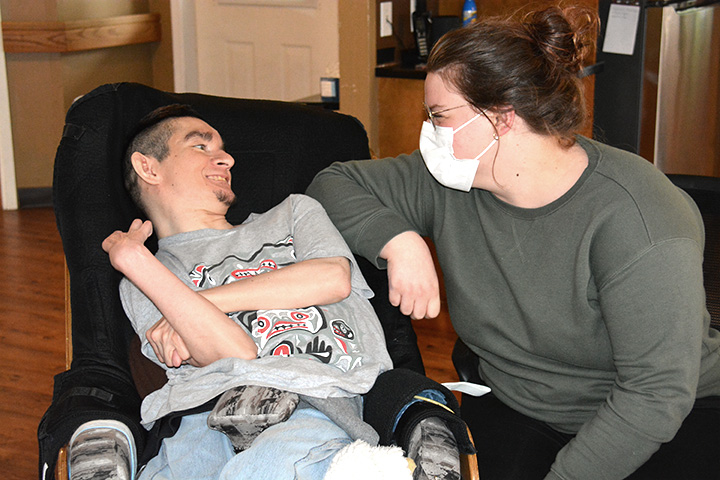
Deanna shares a moment with Cameron. Deanna recently completed her nursing degree and will be leaving Bethesda to pursue her nursing career. She encourages nursing students to work as support workers in a casual capacity because of the relevant practical experience gained while learning valuable clinical and caregiving skills.
It can be intimidating coming into a home as a new support worker. Often the biggest challenge is learning to communicate with the residents. Each person is unique with their own personality and way of communication. Deanna says, “At first it can be difficult because they don’t know you either. They don’t know if they can trust you. But you learn.” She explains it helps to have a willingness to learn.
“You have to be okay with trying and not getting a positive response. As you learn you will be surprised so often by how amazing your conversations can be – even with people who are non-verbal. It is a learning curve, but it’s surprisingly easy to learn from their cues – their body language, eye movements or facial expressions, sounds they make – you just have to be ready and open to being taught, and not take it as a rebuke or a mistake when you get it wrong. You pick up on their cues, because they give off so many, if you’re receptive to them.
Support workers commitment to inclusion, relationships and prayer stands out in their service to the people they support.
Both Deanna and Cylena talk about the closeness of the relationship that develops between the support worker and the person they support. Deanna says, “You are in such a close, intimate and sacred relationship, you have to be respectful of that. Especially as you are beginning to get to know someone – you are going in close with that person and for most people, that’s not comfortable, so it takes time and being aware of the incredible trust they are placing in you.”
Every one of Bethesda’s 23 homes is unique, reflecting the choices and preferences of the people who live in the home, the staff and family members. They have in common a committed staff. The intention that support workers bring each day make each home exceptional. While each brings their own background and motivation to the job, they all have in common a deep sense of caring and love in their service to the people they support.
Bethesda has openings for support workers in communities throughout the Lower Mainland and the Okanagan.
